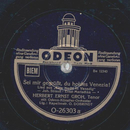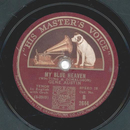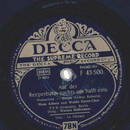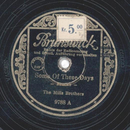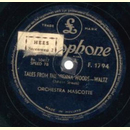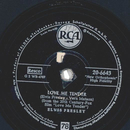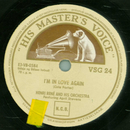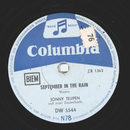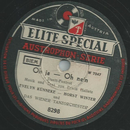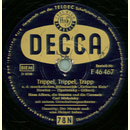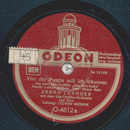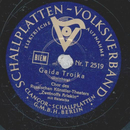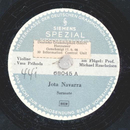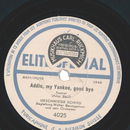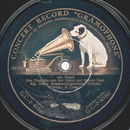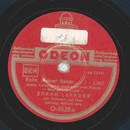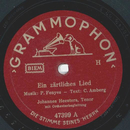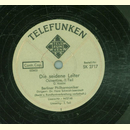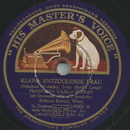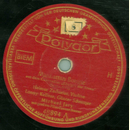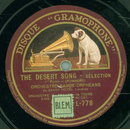
The fascination of 78rpm gramophone records is hardly on the wane, the number of enthusiasts is increasing permanently.
Good that you have found the way to schellack-plattenshop.net. Rummage in our offers, and - maybe - the one or another title will let your mind travel back to your childhood or youth. Or you remind great voices, famous conductors and interesting compositions of the past. Devoid of the shellac record they would be only names and terms without deeper content and significance. Gramophone records are timeless and will exist for decades, when compact disks are destroyed long since.
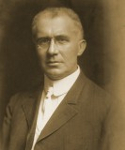
Emil Berliner
(1851 - 1929)
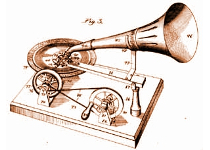
Berliner's first Grammophon
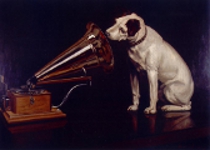
Barrauds Painting
"His Master's Voice"
Emile Berliner, born in Hanover, Germany, and emigrated to the United States in 1870, applied in the year 1887 for a patent regarding a discoid sound storage medium in which was carved a spiral groove. He called this disk "Schallplatte" himself. A further component was a recording and playing apparat too (the so-called "Coffee mill"), the forerunner of the gramophone.
A grandious marketing effectiveness had a logo which is based on the following story: The English painter Francis Barraud cared about the dog "Nipper" of his late brother. When he played his phonograph at times he could notice regularly that the dog listened attentively ahead the machine. So the idea came to paint this situation. Barraud offered the painting to the "Edison & Bell Phonograph Company", but they refused. Now he went to Berliner's "Gramophone Co." Whose director Owen told him that he was interested if Barraud painted the dog in front of a firm gramophone. In September, 1899 the picture was finished and was bought - together with the slogan "His Master's Voice" for the amount of 100 pounds. No doubt, this logo carried the support of gramophone records enormously, because it stood for high fidelity.
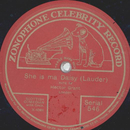
Hector Grant - She is ma Daisy / Rising early in the morning
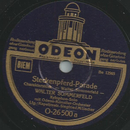
Walter Sommerfeld - Steckenpferd-Parade / Max und Moritz

Eve Boswell - Blue Star / Pickin' A Chicken

Blasorchester: Carl Woitschach - Tiroler Holzhacker-Buab'n / Der kreuzfidele Kupferschmied
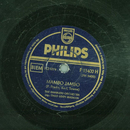
The Ramblers Orchestra - Mambo Jambo / Harlem Mambo

H. Strecker, Kurzer, Robinger, Hayn Quartett - Sing mir das Lied nochmal / Sag beim Abschied leise Servus
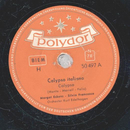
Margot Eskens, Silvio Francesco - Calypso italiano / Wenn Du wieder mal auf Cuba bist
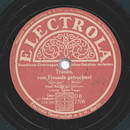
Aksel Schiötz - Tränen, vom Freunde getrocknet / Der Odem der Liebe erfrischt die Seele
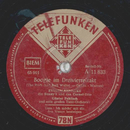
Evelyn Künneke - Boogie im Dreivierteltakt / Ich möcht' mit dir den Vesuv besteigen

Parlophon-Orchester - Am goldenen Horn / Indianerliebe

Herbert Fröhlich und sein Orchester - Chinesische Straßenserenade / Japanischer Laternentanz
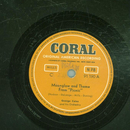
George Cates and his Orch. - Moonglow and Theme from "Picnic" / Rio Batucada

Salon-Quintett Alfred Beres - Herzen und Blumen / Was Blumen träumen

Nina Konsta - El Cumbachero / O Mama, Mama, Mama
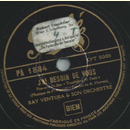
Ray Ventura & son Orchestre - J'ai besoin de vous /Ah! viv'ment dimanche

Die Metronomers - Tschiou-Tschiou-Tschiou / Bim-Bo-Samba
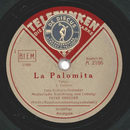
Peter Kreuder - La Palomita / Amargura

Paul Hörbiger, Ilse Hülper, Sonja Ziemann, Karl Golgowsky - Das Schwarzwaldmädel (Operettenquerschnitt)

Walter Hauck und Inge Noll - Immer und ewig / Der erste Sonnenstrahl an deinem Fenster
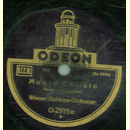
Wiener-Boheme-Orchester - Monte Christo / Tesoro Mio...
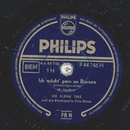
Die kleine Terz - Ich möcht' gern an Biersee / Das weißblaue Dirndl
